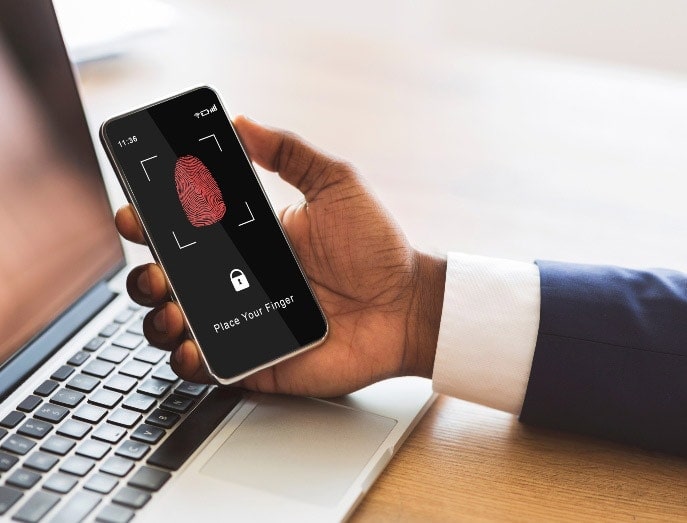When Can Police Search Your Phone Australia?
On August 25th, 2022, the Australian government amended the Surveillance Legislation on the Identify and Disrupt Bill 2020. This change allows the Australian Federal Police (AFP) and Australian Criminal Intelligence Commission (ACIC) more rights to search and seize information on your mobile devices.
The significant changes with this amendment are new “reasonable suspicions” that law enforcement can use to justify searching your phone.
Data disruption warrants grant law enforcement the right to modify or delete data of suspected offenders.
Network activity warrants allow police to collect intelligence about criminal networks.
Account takeover warrants give police permission to take control of online accounts on a suspected offender’s mobile phone.
If questions like, ‘can police access your phone in Australia or can police search your phone in Australia’ are on your mind, continue reading for answers regarding your rights.
Has your phone been seized? Need criminal law legal expertise?
Contact JJ Lawyers for their expert criminal lawyers Sydney services to discuss how Australian phone laws affect you and how our team can help with your civil rights law case.
Organise A Free Consultation – (02) 8005 3075
When Can Police Search Your Phone Australia
Understanding your rights when police search your phone in Australia – what you need to know
Police in Australia can search your phone if they suspect you or your phone has been involved in a crime.
Under Criminal Code 205A, police officials can issue a warrant to search your phone. Criminal Code 205A cites Sections 154 (1 and 2), 154A (2), and 178A (1) of the Police Powers and Responsibilities Act 2000, and 88A (1) and 88B (2) of the Crime and Corruption Act 2001 as grounds.
Division 3 of the Law Enforcement (Powers and Responsibilities) Act 2002 states that police may seize a mobile phone for seven days or up to fourteen days if its seizure would assist in preventing or controlling a crime or public disorder.
178A (1) says that a police officer can search a phone with a warrant if the device is found at a crime scene and there’s reasonable suspicion that it contains evidence.
In Queensland, Sections 88A and 88B of the Crime and Corruption Act 2001 allow law officials to obtain information on a phone from the service provider and social media accounts. If law officials wish to do this, they must submit the search warrant to the Administrative Appeals Tribunal (AAT) and justify why they need the data.
Similar laws exist in New South Wales. Here, we’ll discuss those further.
During a Search
If you’re wondering, can police access your phone in Australia during a search? The answer is yes. Police can search and seize property, including phones, computers, illicit substances, weapons, or cash, when searching a person, vehicle, or home.
According to sections 21 and 36 of LEPRA, police can search your possessions during or after an arrest. The search is warranted if there’s reasonable suspicion that the item could be used in a crime, allow escape, or provide evidence. Officers can only take your possessions at a detention place, police station, or during or before being transported.
During an Arrest
What about during an arrest; can police access your phone in Australia? The answer is yes. During an arrest, police can seize property, including your phone.
According to sections 27 and 28A of LEPRA, police can search your possessions during or after an arrest if there’s reasonable suspicion that the item could be used in a crime, allow escape, or provide evidence. Officers can only take your possessions at a detention place, police station, or during or before being transported.
What To Do If Police Take Your Phone
Protecting your rights during a phone search
If a police officer asks to look at your phone without a warrant, ask them what the reasonable suspicion is and politely request that they get a warrant if they’d like to look inside the device.
Always keep a password on your phone. An officer cannot force you to provide the passcode or password unless they’ve obtained a warrant.
If a warrant has been issued, it must state a timeline for when the information, like a password, must be provided. It must also clearly state where the information sharing will take place.
Reasons To Deny Phone Access
Determining a “Reasonable Excuse” for Denying a Phone Search
Can police access your phone in Australia if you have a good reason to deny a search warrant? Yes, you can deny a search warrant for your phone.
You must provide law enforcement with a “reasonable excuse” for why they cannot search your phone. Once a warrant is issued, you have little power over what happens to your device and its data.
The law is unclear about what qualifies as a “reasonable excuse” and is determined on a case-by-case basis. For example, suppose someone has sensitive data from their job on their mobile device (not connected to the investigation). In that case, this may be considered a “reasonable excuse” for a judge or Magistrate not to issue a warrant.
Talk with our expert criminal lawyers today to determine if you have grounds to stop a search warrant with a “reasonable excuse.”
Organise A Free Consultation – (02) 8005 3075
Failing to Comply
You may be charged with hindering an investigation if you do not provide law officials with your phone or password upon request.
If you’re issued a search warrant yet fail to provide the passcode or the device, you may face up to five years imprisonment and a fine of up to $63,000. If it’s discovered that you committed a serious crime, the sentence and fine can be doubled.
Phone providers and social media companies must give law enforcement requested phone information and data once it’s approved by the AAT. Failure to comply can result in up to 10 years of prison.
So, Can the Police Access Your Phone in Australia?
Seeking Legal Advice After a Phone Search or Seizure
Can police search your phone in Australia? Now you know that, yes, police can search your phone if they have reasonable suspicion you’ve been involved in a crime or if your device contains evidence of a crime.
If you or someone you know has had your phone searched or had a phone confiscated by Australian law enforcement, seek legal advice today. Our team of expert criminal law specialists, traffic law & family lawyers Sydney at JJ Lawyers are ready to help take action and determine if your phone search or seizure was lawful.
Organise A Free Consultation – (02) 8005 3075
For more insightful blogs, see our dedicated law blog, where we unpack other pertinent legal questions such as ‘How Long Does A Criminal Record Last In NSW’, ‘Does Drink Driving Give You A Criminal Record?’ & More!





